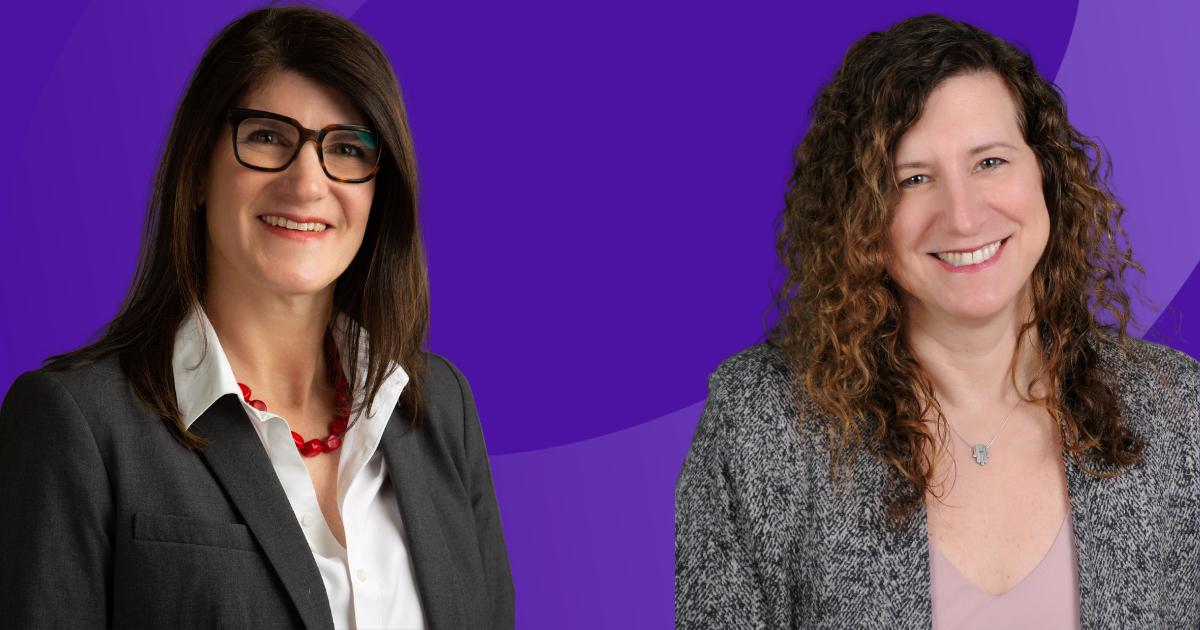
The term “self-care” seems to be everywhere these days, especially after the pandemic so drastically impacted women’s role in the workforce, with many putting their careers in the backseat to serve as caregivers for their families. Seeing women prioritize their well-being, explore their passions and build a life they love is empowering, and self-care is an important part of many people’s lives. We want to protect that.
Unfortunately, many often forget to prioritize their financial future as part of self-care. Retirement planning and life insurance should be considered as part of our overall financial health.
With nearly 50 years of combined experience in the financial industry, Martha Hart, vice president, national sales manager of the Retirement Division at Protective, and Erika Williams, vice president, national sales director for insurance at Protective, make it their mission to teach women practical takeaways for managing financial wellness, especially considering the following statistics:
- Women hold a lot of financial power, controlling a third of total U.S. household financial assets.
- Women are underinsured when it comes to life insurance. LIMRA reports that 56 million women are underinsured or not insured at all.
- Women live longer than men. There is a longevity gap between women and men, so women should be financially prepared to outlive their spouses.
“For a group conditioned to care for other people, women often overlook themselves. Whether you are married, single, younger or older, it’s never too late to plan for your future,” Williams notes. “Planning for your financial future doesn’t have to be complicated. You don’t have to enjoy crunching numbers or spend time bingeing on investment podcasts if you don’t want to...it can be as easy as finding the right financial professional or asking the right questions of your current one.”
It starts with finding the right financial professional
“Interview several financial representatives like you would any other professional in your life,” Hart advises. “Make sure they are not pushing you to make decisions right away. They should take the time to understand your full financial picture and educate you on your options.”
Find someone you feel comfortable with. You are talking about personal details with this person and trusting them to make wise decisions on your behalf.
If your household already has a financial professional, attend the next meeting. Know who they are, how to get in touch with them and what plans you have in place. And don’t be afraid to ask them questions about your future.
Ask the hard questions
Don’t wait for a life-altering event to ask the hard questions. Ask them now. Prepare for how you or your spouse could outlive one another.
Do you have the right amount of life insurance in place? What are your long-term care plans together, or individually?
If something happens, you don’t want to wonder what you should do next — you want to know that you’re taken care of.
Pass it on
Knowledge is power. Research shows children can establish money habits as young as seven years old.
“So much of how you react to money is how you were raised,” explains Williams. “The more we can teach to our kids, the more financially sound they will be as adults.”
By discussing finances with your children at an early age, you can empower the next generation to become more competent and comfortable managing their finances as adults.
What this means for financial professionals
“Women shouldn’t have to wait for someone to tap them on the shoulder,” Hart says. “It’s our job to provide education, resources and the access needed to help protect their future.”
Women are projected to control much of the $30 trillion in financial assets baby boomers currently possess, and they should be prepared with the right team to achieve real protection.
There are easy ways to improve the way you work with female clients:
- Don’t fall short by only talking numbers. Understand your client’s vision for her life. What does she want in the future, and how can you help build a road map to get there? Base your recommendations for the right insurance or retirement solutions on how it will help her achieve her life’s aspirations.
- Build a relationship with each decision-maker in the household. If you regularly meet or communicate with only one client in a relationship, invite their partner to the next meeting. Both need to be involved to understand what plans are in place.
- Encourage them to be proactive. It’s our duty to protect our clients. Work with them to put plans in place before a triggering event occurs.
From a retirement standpoint, guaranteed lifetime income can provide financial security for clients, so consider exploring annuities.
Since women tend to be underinsured or uninsured, life insurance can also be discussed to ensure enough is in place to care for family members. Consider a long-term care rider too, knowing most women outlive their spouses and will need care for themselves as they age.
“It’s our role to guide people to the right solutions,” Williams says. “Let’s make it as easy as possible and improve their quality of life to help ensure that all futures are protected.”
Martha Hart is vice president, national sales manager of the retirement division at Protective. Erika Williams is vice president, national sales director for insurance at Protective.





 To exercise your privacy choices,
To exercise your privacy choices,